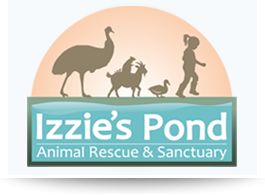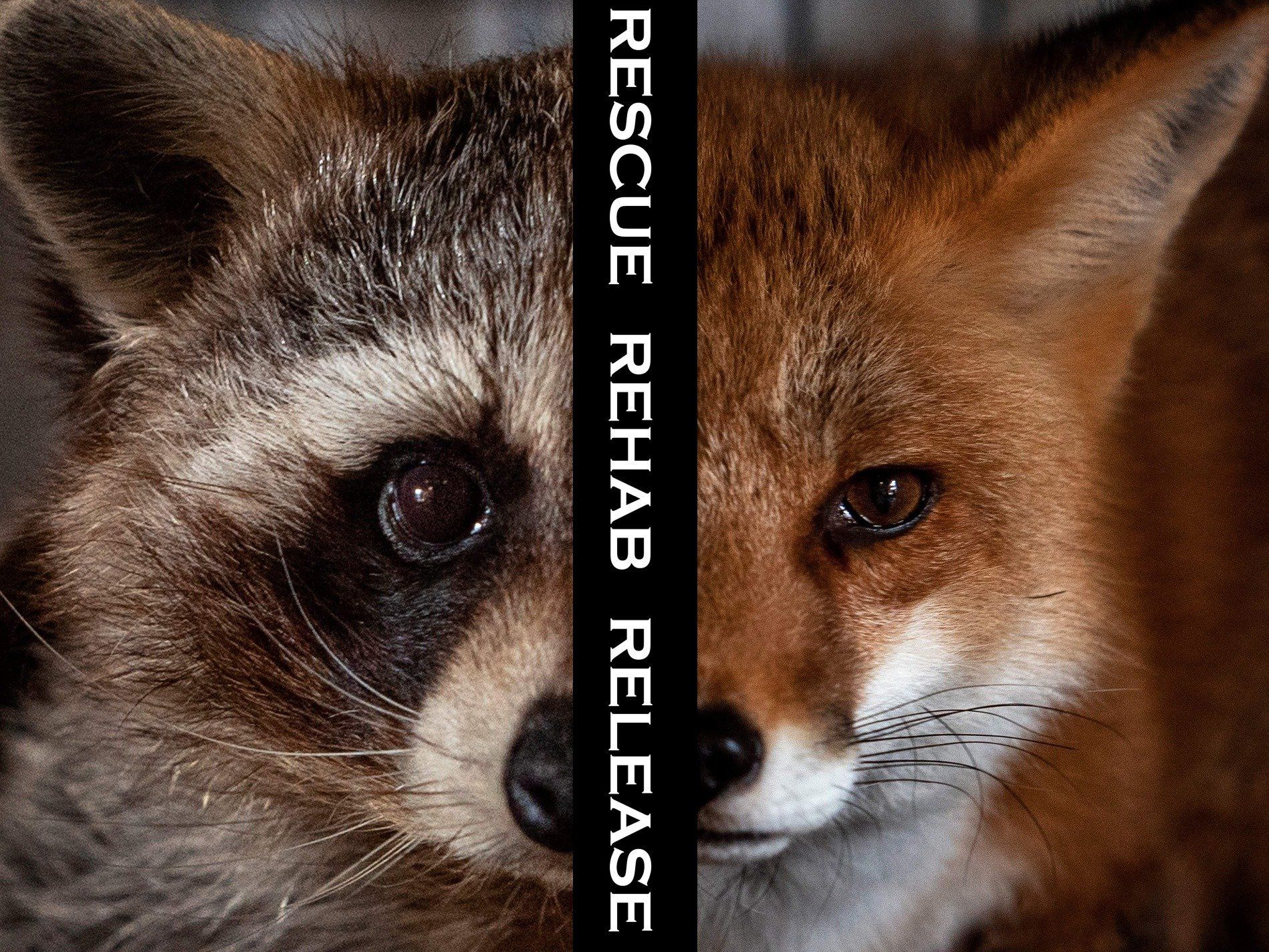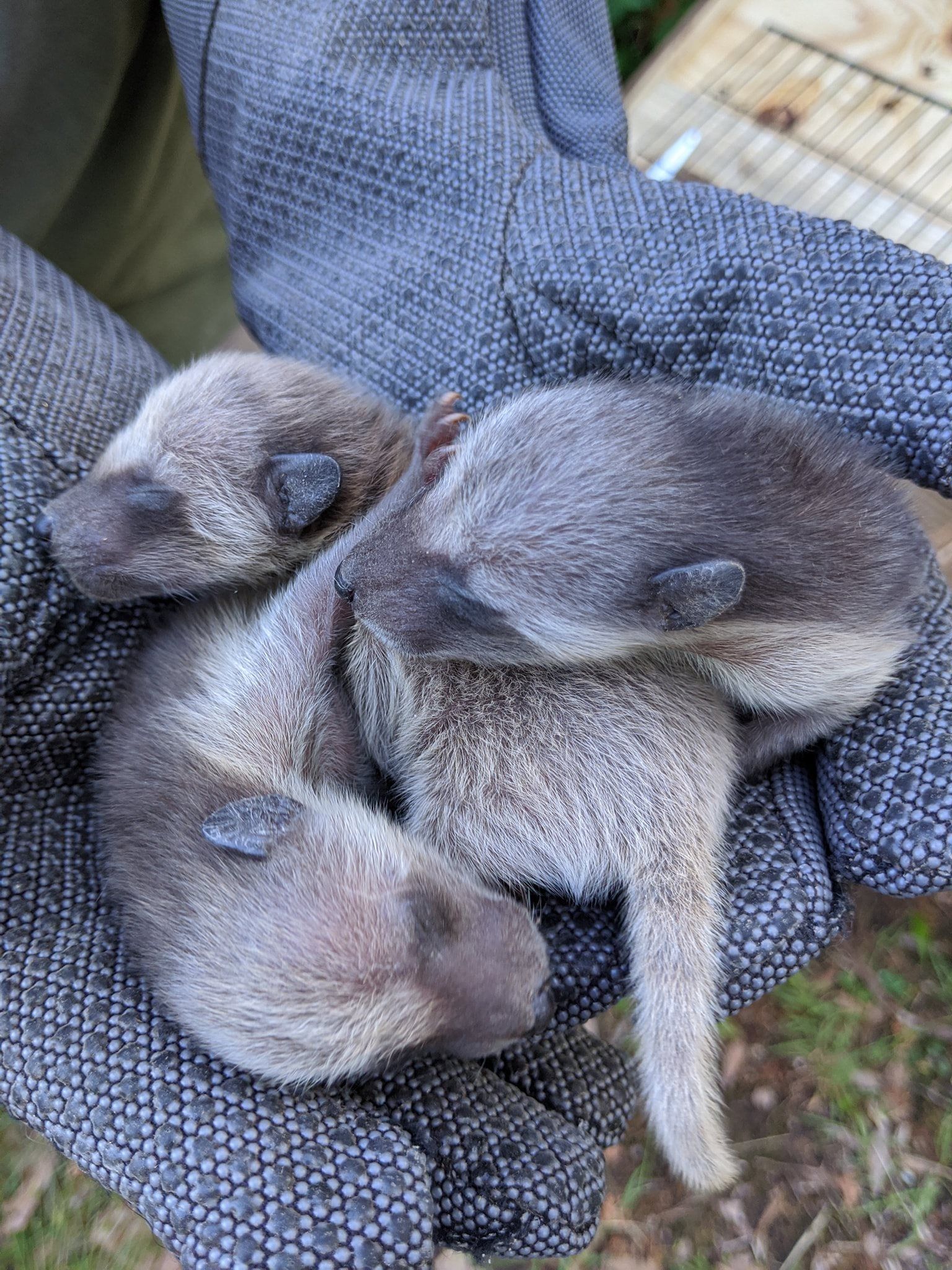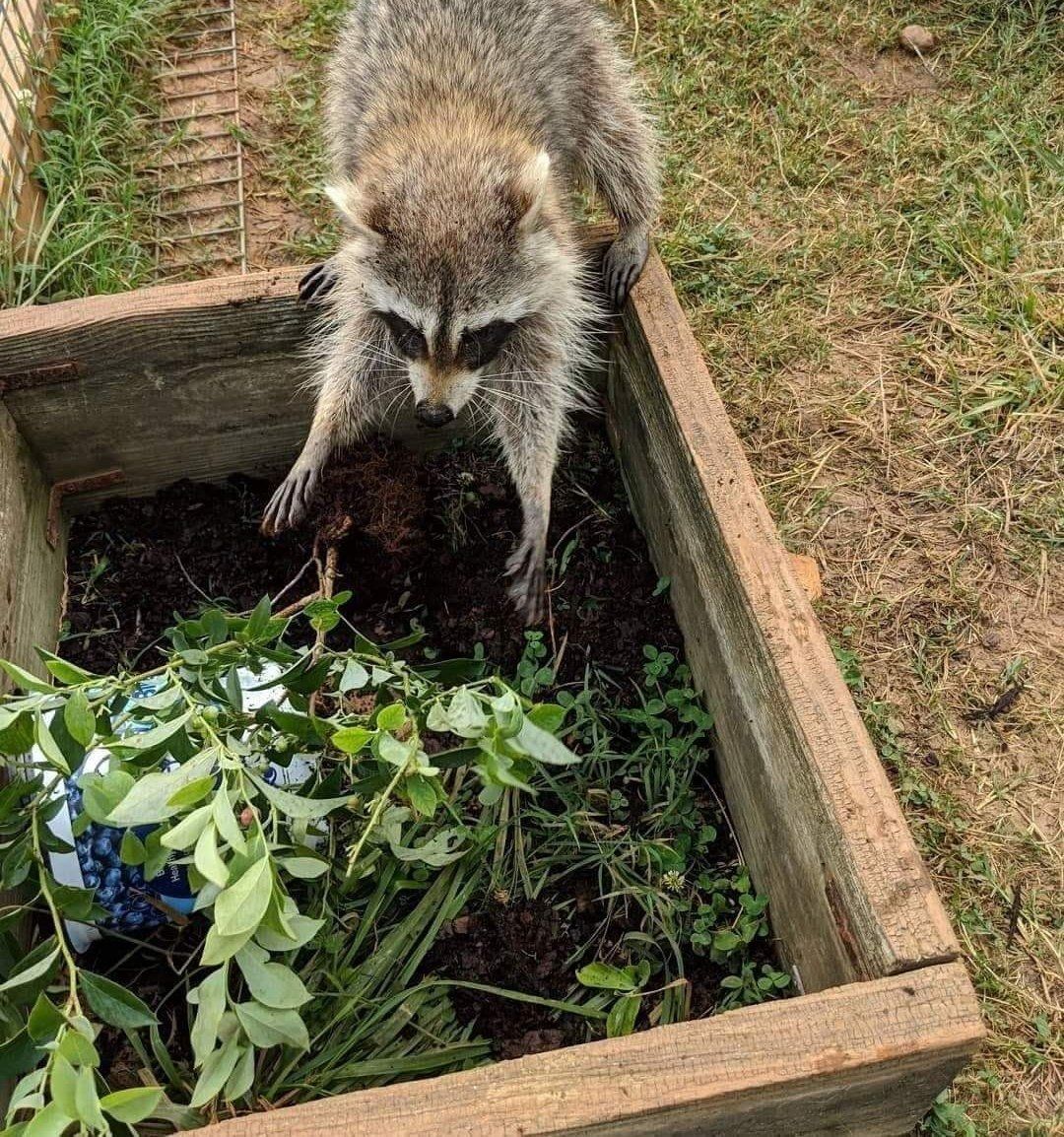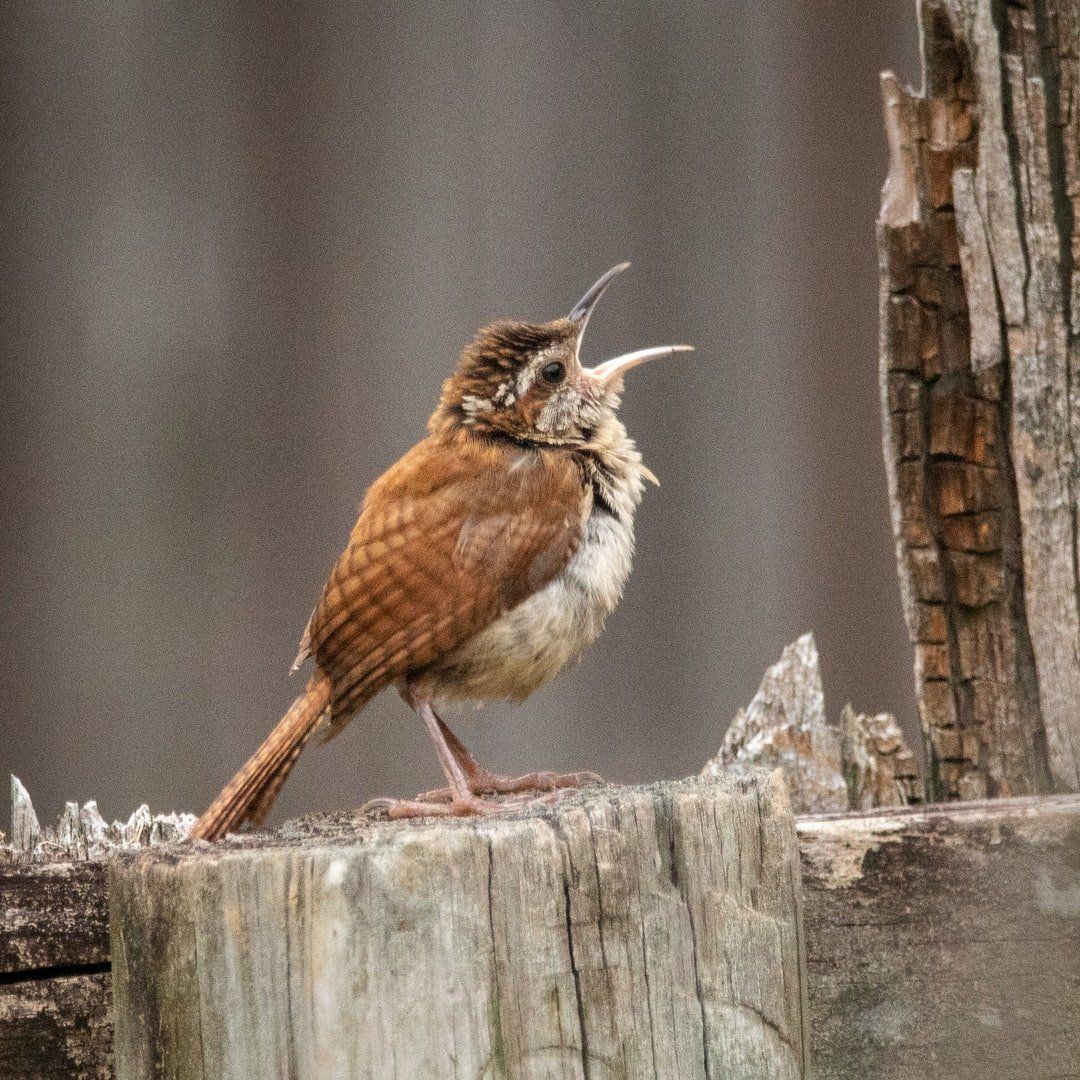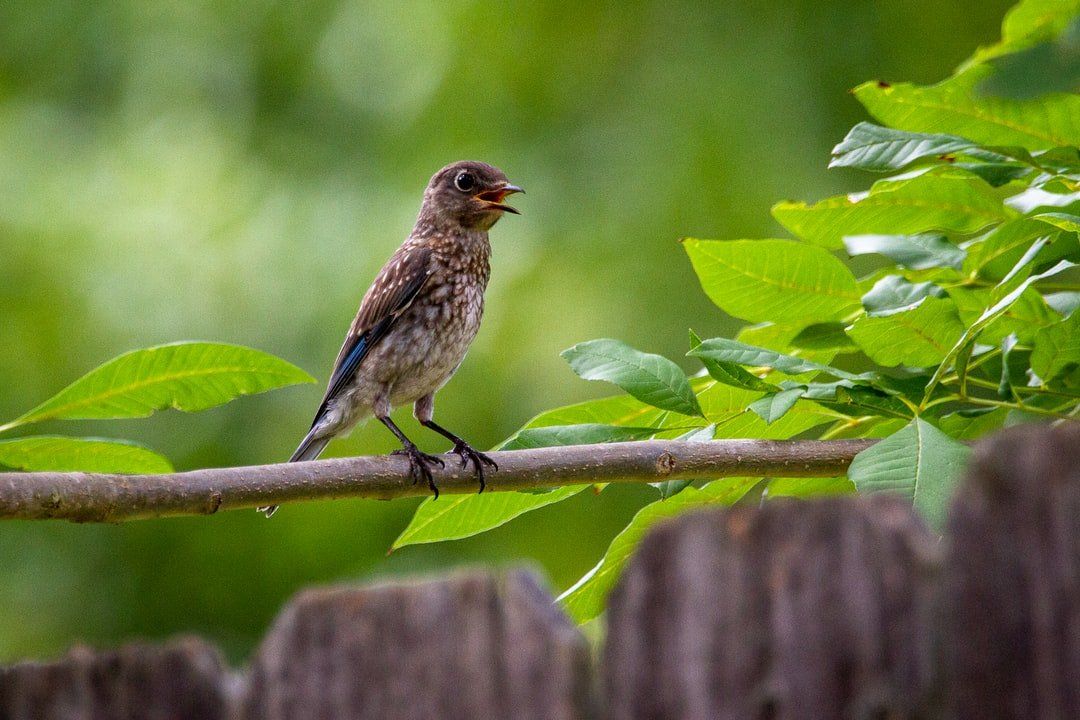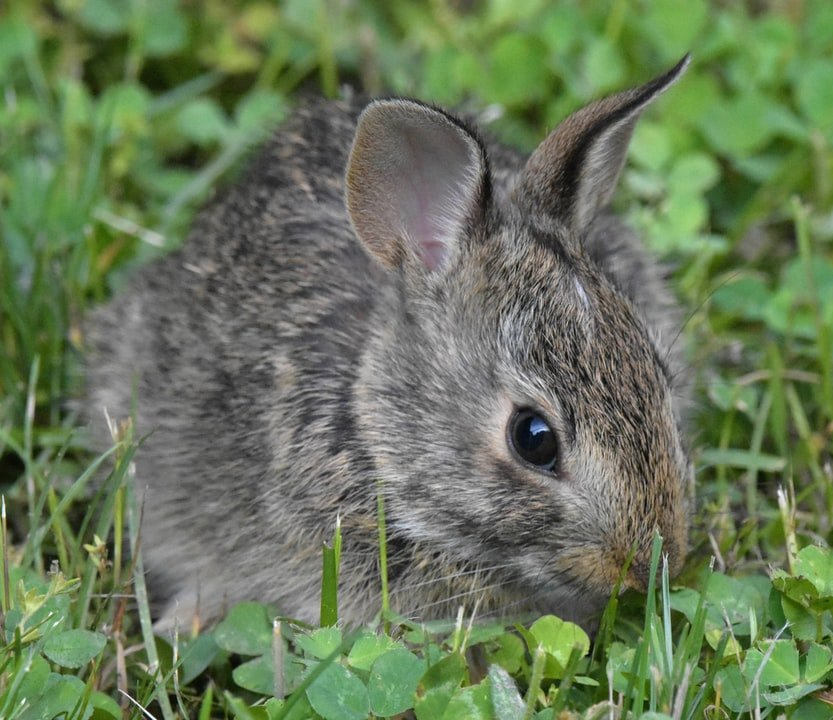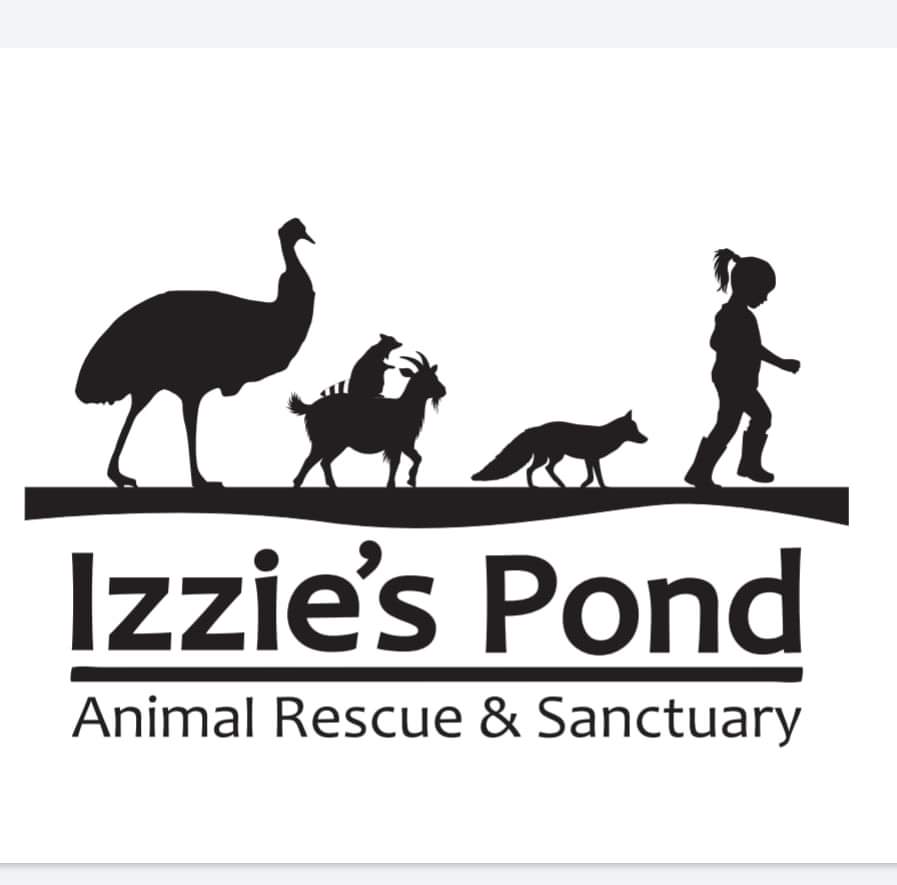I Need Information
Universal Guidelines
While care is often species-specific, here are three rules to follow no matter what species you find:
DO NOT give food or water to any wild animal.
We know this seems counterintuitive, especially for an animal that looks hungry or thirsty. However, every situation is different. Internet instructions cannot account for every situation, so feeding or watering an animal can actually add a secondary source of harm and make it harder for us to assess the animal’s condition. Tiny stomachs are sensitive and feeding the wrong thing can do more harm than feeding nothing at all.
DO NOT try to raise the animal yourself.
State and federal laws against raising or keeping wild animals without appropriate permits isn’t just government bureaucracy; they’re designed to protect both you and the animals.
- Raising a wild animal is difficult to do without proper training. Each year we take in wild babies who later die because their keepers didn’t have the medications, antibiotics, or nutrition they needed
- Wild animals raised incorrectly by untrained individuals often result in human habituated animals that don't fit in -- either with people, or their own species. They need to be raised with their own species.
- The cutest and cuddliest animals can still carry viruses and parasites that could harm you, your children, or your pets. An experienced wildlife rehabber can determine if an animal is sick and has the resources readily available to give the expert care that animal requires and needs.
Call or Message the Hotline before bringing an animal to Izzie’s Pond.
Whether you’ve identified that animal definitely needs rescue, or you just aren’t sure, please call us BEFORE you move the animal. You may have an animal that we don’t rehab here and transport to us will waste valuable time and further stress the animal. By contacting the Hotline, you will be in touch with a trained volunteer that can assess the situation and advise for the best course of action so the animal is getting qualified and appropriate care as soon as possible.
When you call us:
- We’ll need your name, phone number, address, and location of the animal.
- Tell us whether the animal is in your possession and contained, or still running free.
- Tell us what age you think it is.
- If it’s a baby, has it been abandoned, or is the mother nearby?
- Tell us whether the animal is in immediate danger.
- If it’s injured, tell us its apparent injuries.
- Text pictures of animal and address to 864-372-9992.
What to Do if: I found a baby mammal
Raccoons, opossums, squirrels, deer, and many other Upstate mammal species all have their babies in spring and raise them throughout summer! You may encounter babies on your property or in public spaces when they nest in your attic, shed, or boat; when mothers “park” their babies for safety while they forage; or even when the animal’s nesting spot is damaged in any way.
If you’ve found one or more baby raccoons, opossums, squirrels, fawns, foxes, skunks, or birds, please refer to the Humane Society of the United States’ excellent page, “How to Help Orphaned or Injured Wildlife.” If, after using this page, you’ve determined that the baby does need help, please contact us immediately!
When you call us:
- We’ll need your name, phone number, address, and location of the animal.
- Tell us whether the animal is in your possession and contained, or still running free.
- Tell us what age you think it is.
- If it’s a baby, has it been abandoned, or is the mother nearby?
- Tell us whether the animal is in immediate danger.
- If it’s injured, tell us its apparent injuries.
- Text pictures of animal and address to 864-372-9992l.
Again, give no water or food! Feeding the wrong food, or feeding an animal that is dehydrated or in shock, can be fatal.
Izzie’s Pond Emergency Hotline: 864-372-9992
Raccoons, opossums, squirrels, deer, and many other Upstate mammal species all have their babies in spring and raise them throughout summer! You may encounter babies on your property or in public spaces when they nest in your attic, shed, or boat; when mothers “park” their babies for safety while they forage; or even when the animal’s nesting spot is damaged in any way.
If you’ve found one or more baby raccoons, opossums, squirrels, fawns, foxes, skunks, or birds, please refer to the Humane Society of the United States’ excellent page, “How to Help Orphaned or Injured Wildlife.” If, after using this page, you’ve determined that the baby does need help, please contact us immediately!
When you call us:
- We’ll need your name, phone number, address, and location of the animal.
- Tell us whether the animal is in your possession and contained, or still running free.
- Tell us what age you think it is.
- If it’s a baby, has it been abandoned, or is the mother nearby?
- Tell us whether the animal is in immediate danger.
- If it’s injured, tell us its apparent injuries.
- Text pictures of animal and address to 864-372-9992l.
Again, give no water or food! Feeding the wrong food, or feeding an animal that is dehydrated or in shock, can be fatal.
Izzie’s Pond Emergency Hotline: 864-372-9992
What to Do if: I have unwanted animals on my property
A wild animal living on your property is a temporary situation! This is the first and most important thing to know. You can manage the situation humanely and effectively, without need to trap, kill, or orphan the animals.
With development accelerating throughout our region, many animals will adapt and become “urban wildlife.” They seek warm, safe places to have and raise babies, escape predators and bad weather, and that have easy access to food which is no longer as easy to come by.
Before you do anything, we ask you first to assess your situation with wildlife
using the 6 steps outlined by the Humane Society of the United States. If you need information for a specific species, the Human Society also offers
answers to common wildlife problems.
Know that there are alternatives to live trapping and relocating. Often, you can safely and humanely coexist with your wild neighbors! Get to know your wild neighbors and please consider learning how to create a DIY humane backyard.
Finally, if you have pets, make sure your dog or cat’s rabies vaccination is up-to-date. Rabies vaccines must be administered once per year. Feed your pets indoors rather than outdoors, or offer food closer to your property boundary if you don’t mind feeding wildlife but simply don’t want it near your home.
Locally, Izzie’s Pond works with wildlife specialists who can help you identify how to exclude wildlife from your home and prevent them from coming back. Visit our “Partners” page to find a specialist in your area!
A wild animal living on your property is a temporary situation! This is the first and most important thing to know. You can manage the situation humanely and effectively, without need to trap, kill, or orphan the animals.
With development accelerating throughout our region, many animals will adapt and become “urban wildlife.” They seek warm, safe places to have and raise babies, escape predators and bad weather, and that have easy access to food which is no longer as easy to come by.
Before you do anything, we ask you first to assess your situation with wildlife
using the 6 steps outlined by the Humane Society of the United States. If you need information for a specific species, the Human Society also offers
answers to common wildlife problems.
Know that there are
alternatives to live trapping and relocating. Often, you can safely and humanely coexist with your wild neighbors!
Get to know your wild neighbors
and please consider learning how to
create a DIY humane backyard.
Finally, if you have pets, make sure your dog or cat’s rabies vaccination is up-to-date. Rabies vaccines must be administered once per year. Feed your pets indoors rather than outdoors, or offer food closer to your property boundary if you don’t mind feeding wildlife but simply don’t want it near your home.
Locally, Izzie’s Pond works with wildlife specialists who can help you identify how to exclude wildlife from your home and prevent them from coming back. Visit our “Partners” page to find a specialist in your area!
A wild animal living on your property is a temporary situation! This is the first and most important thing to know. You can manage the situation humanely and effectively, without need to trap, kill, or orphan the animals.
With development accelerating throughout our region, many animals will adapt and become “urban wildlife.” They seek warm, safe places to have and raise babies, escape predators and bad weather, and that have easy access to food which is no longer as easy to come by.
Before you do anything, we ask you first to assess your situation with wildlife
using the 6 steps outlined by the Humane Society of the United States. If you need information for a specific species, the Human Society also offers
answers to common wildlife problems.
Know that there are
alternatives to live trapping and relocating. Often, you can safely and humanely coexist with your wild neighbors!
Get to know your wild neighbors
and please consider learning how to
create a DIY humane backyard.
Finally, if you have pets, make sure your dog or cat’s rabies vaccination is up-to-date. Rabies vaccines must be administered once per year. Feed your pets indoors rather than outdoors, or offer food closer to your property boundary if you don’t mind feeding wildlife but simply don’t want it near your home.
Locally, Izzie’s Pond works with wildlife specialists who can help you identify how to exclude wildlife from your home and prevent them from coming back. Visit our “Partners” page to find a specialist in your area!
What to Do if: I found a dog, cat, songbird, or rabbit
Izzie’s Pond cannot rehabilitate all sick and injured animals in the Upstate -- but we do belong to an extensive network of rehabbers. Though we may not personally be able to take the animal you have found, we may be able to help you find someone who can.
Izzie’s Pond is a wildlife rescue and does not take in domestic dogs or cats. If you have found a dog or cat, there are many great local rescues that specialize in these animals. Refer to the Petfinder.com website to find contact information for the rescues nearest to you.
I found a songbird
First determine if it needs help:
A bird flew into my window
Often a bird will just be stunned. You should:
- Put the bird in a covered shoe box with air holes in a quiet dark place away from pets and children.
- Do not handle the bird otherwise.
- Wait 2 to 3 hours, and then take the box back outside.
- Open the box. If the bird cannot fly away and still appears injured, it needs to go to a federally licensed songbird rehabber.
I found a nestling
If you have found an uninjured nestling:
- Put it back in its nest.
- If its original nest was destroyed or can’t be reached, make a “nest” out of a hanging basket or strawberry basket. Secure it to the tree as high up and as close to the original nest as you can get.
- Watch from a distance for at least an hour to make sure its parents come back to feed it.
I found a fledgling
Fledglings will hop around on the ground for several days while parents continue to feed them and teach them to fly. This is a normal process that every bird must go through. If you find an uninjured fledgling in your yard, keep your pets indoors and walk in another area or with a leash until the fledgling has moved on. It doesn’t take long!
However, if the fledgling is injured or if any bird is caught by a cat, due to bacteria in cat saliva, the bird needs antibiotics within the first 24 hours of the attack or it likely will not survive.
A federal permit is necessary to rehab songbirds. Find a licensed rehabber near you by visiting the South Carolina Department of Natural Resource’s wildlife rehabbers registry.
I found a bunny
Bunny nests are often uncovered when people are mowing grass or working in their yards and gardens. Just because you don’t see the mom, doesn’t mean you have found orphans. Mom only comes at dawn and at dusk to feed her babies, and stays away the rest of the time so she doesn’t lure predators to the nest.
If you have found uninjured babies:
- Gently cover the nest again with grass and leaves.
- Leave twigs in a tic tac toe pattern over the nest.
- Check back 12-24 hours later. If the twigs have not been disturbed, you need to find a rehabber.
- Keep dogs and cats indoors away from the nest.
Baby bunnies leave the nest and are on their own in just 4 short weeks!
If a bunny is injured or caught by a cat, due to bacteria in cat saliva, the bunny needs antibiotics within the first 24 hours of the attack or it likely will not survive.
If you find a bunny that needs help, contact our sister rescue Bunny Brigade SC, Inc at 864-372-9992.
Izzie’s Pond cannot rehabilitate all sick and injured animals in the Upstate -- but we do belong to an extensive network of rehabbers. Though we may not personally be able to take the animal you have found, we may be able to help you find someone who can.
Izzie’s Pond is a wildlife rescue and does not take in domestic dogs or cats. If you have found a dog or cat, there are many great local rescues that specialize in these animals.
Refer to the Petfinder.com website to find contact information for the rescues nearest to you.
I found a songbird
First determine if it needs help:
A bird flew into my window
Often a bird will just be stunned. You should:
- Put the bird in a covered shoe box with air holes in a quiet dark place away from pets and children.
- Do not handle the bird otherwise.
- Wait 2 to 3 hours, and then take the box back outside.
Open the box. If the bird cannot fly away and still appears injured, it needs to go to a federally licensed songbird rehabber.
I found a nestling
If you have found an uninjured nestling:
- Put it back in its nest.
- If its original nest was destroyed or can’t be reached, make a “nest” out of a hanging basket or strawberry basket. Secure it to the tree as high up and as close to the original nest as you can get.
Watch from a distance for at least an hour to make sure its parents come back to feed it.
I found a fledgling
Fledglings will hop around on the ground for several days while parents continue to feed them and teach them to fly. This is a normal process that every bird must go through. If you find an uninjured fledgling in your yard, keep your pets indoors and walk in another area or with a leash until the fledgling has moved on. It doesn’t take long!
However, if the fledgling is injured or if any bird is caught by a cat, due to bacteria in cat saliva, the bird needs antibiotics within the first 24 hours of the attack or it likely will not survive.
A federal permit is necessary to rehab songbirds. Find a licensed rehabber near you by visiting the South Carolina Department of Natural Resource’s wildlife rehabbers registry.
I found a bunny
Bunny nests are often uncovered when people are mowing grass or working in their yards and gardens. Just because you don’t see the mom, doesn’t mean you have found orphans. Mom only comes at dawn and at dusk to feed her babies, and stays away the rest of the time so she doesn’t lure predators to the nest.
If you have found uninjured babies:
- Gently cover the nest again with grass and leaves.
- Leave twigs in a tic tac toe pattern over the nest.
- Check back 12-24 hours later. If the twigs have not been disturbed, you need to find a rehabber.
- Keep dogs and cats indoors away from the nest.
Baby bunnies leave the nest and are on their own in just 4 short weeks!
If a bunny is injured or caught by a cat, due to bacteria in cat saliva, the bunny needs antibiotics within the first 24 hours of the attack or it likely will not survive.
If you find a bunny that needs help, contact our sister rescue Bunny Brigade SC, Inc at 864-372-9992.
Izzie’s Pond cannot rehabilitate all sick and injured animals in the Upstate -- but we do belong to an extensive network of rehabbers. Though we may not personally be able to take the animal you have found, we may be able to help you find someone who can.
Izzie’s Pond is a wildlife rescue and does not take in domestic dogs or cats. If you have found a dog or cat, there are many great local rescues that specialize in these animals.
Refer to the Petfinder.com website to find contact information for the rescues nearest to you.
I found a songbird
First determine if it needs help:
A bird flew into my window
Often a bird will just be stunned. You should:
- Put the bird in a covered shoe box with air holes in a quiet dark place away from pets and children.
- Do not handle the bird otherwise.
- Wait 2 to 3 hours, and then take the box back outside.
- Open the box. If the bird cannot fly away and still appears injured, it needs to go to a federally licensed songbird rehabber.
I found a nestling
If you have found an uninjured nestling:
- Put it back in its nest.
- If its original nest was destroyed or can’t be reached, make a “nest” out of a hanging basket or strawberry basket. Secure it to the tree as high up and as close to the original nest as you can get.
- Watch from a distance for at least an hour to make sure its parents come back to feed it.
I found a fledgling
Fledglings will hop around on the ground for several days while parents continue to feed them and teach them to fly. This is a normal process that every bird must go through. If you find an uninjured fledgling in your yard, keep your pets indoors and walk in another area or with a leash until the fledgling has moved on. It doesn’t take long!
However, if the fledgling is injured or if any bird is caught by a cat, due to bacteria in cat saliva, the bird needs antibiotics within the first 24 hours of the attack or it likely will not survive.
A federal permit is necessary to rehab songbirds. Find a licensed rehabber near you by visiting the South Carolina Department of Natural Resource’s wildlife rehabbers registry.
I found a bunny
Bunny nests are often uncovered when people are mowing grass or working in their yards and gardens. Just because you don’t see the mom, doesn’t mean you have found orphans. Mom only comes at dawn and at dusk to feed her babies, and stays away the rest of the time so she doesn’t lure predators to the nest.
If you have found uninjured babies:
- Gently cover the nest again with grass and leaves.
- Leave twigs in a tic tac toe pattern over the nest.
- Check back 12-24 hours later. If the twigs have not been disturbed, you need to find a rehabber.
- Keep dogs and cats indoors away from the nest.
Baby bunnies leave the nest and are on their own in just 4 short weeks!
If a bunny is injured or caught by a cat, due to bacteria in cat saliva, the bunny needs antibiotics within the first 24 hours of the attack or it likely will not survive.
If you find a bunny that needs help, contact our sister rescue Bunny Brigade SC, Inc at 864-372-9992.
